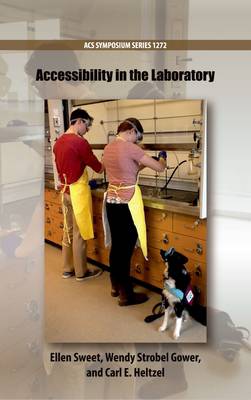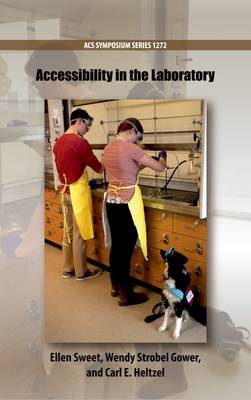
- Afhalen na 1 uur in een winkel met voorraad
- Gratis thuislevering in België vanaf € 30
- Ruim aanbod met 7 miljoen producten
- Afhalen na 1 uur in een winkel met voorraad
- Gratis thuislevering in België vanaf € 30
- Ruim aanbod met 7 miljoen producten
Zoeken
€ 164,45
+ 328 punten
Omschrijving
For some people with disabilities, their interest and skills are best applied to laboratory work. Science laboratories are environments where hazardous materials and processes are in use, and assessments are required to mitigate risk and ensure compliance with Occupational Safety and Health Administration (OSHA) and Environmental Protection Agency (EPA) regulations. Accommodating individuals in a laboratory requires balancing adherence to those regulations, as well as the Americans with Disabilities Act (ADA) technical access standards. Individualized assessment and accommodation are needed to ensure that a qualified individual with a disability can work or study effectively in the laboratory while ensuring a safe working environment for all. This book is intended to be a helpful guide for professionals to understand how to provide equal access to people with disabilities in a laboratory environment. It will review the breadth of protections that are provided by the ADA. This book also covers the roles and responsibilities of persons involved in laboratory oversight, including institutional policies and their limitations with respect to providing appropriate support for individualized assessments in the laboratory.
Specificaties
Betrokkenen
- Auteur(s):
- Uitgeverij:
Inhoud
- Aantal bladzijden:
- 148
- Taal:
- Engels
- Reeks:
Eigenschappen
- Productcode (EAN):
- 9780841232761
- Verschijningsdatum:
- 12/12/2018
- Uitvoering:
- Hardcover
- Formaat:
- Genaaid
- Afmetingen:
- 155 mm x 231 mm
- Gewicht:
- 385 g

Alleen bij Standaard Boekhandel
+ 328 punten op je klantenkaart van Standaard Boekhandel
Beoordelingen
We publiceren alleen reviews die voldoen aan de voorwaarden voor reviews. Bekijk onze voorwaarden voor reviews.











